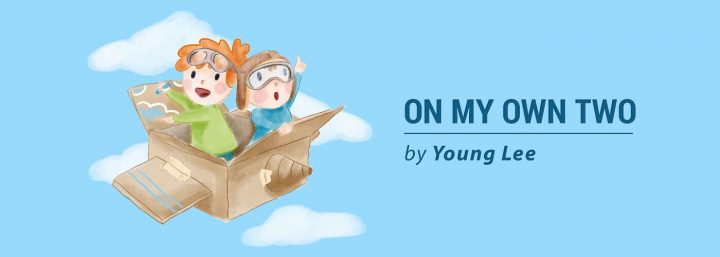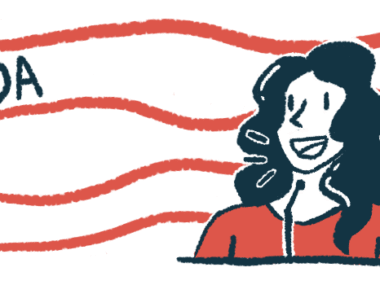My Journaling Habit Helps Me to Deal with Negative Thoughts
Written by |

Column by Young Lee
While scrolling through my Twitter feed recently, I came across a tweet from Charis Hill, an advocate for disability rights. The tweet was a list of things that every disabled person has supposedly heard at least a few times. It included phrases such as, “You wouldn’t be disabled if you thought positive,” “Everyone feels this way sometimes,” and “You should be happy with what you’re given.”
The tweet prompted me to consider my feelings about my struggles with the symptoms of Charcot-Marie-Tooth (CMT) disease and my inner monologue. Because even though I might have heard such phrases once or twice from others, they most resemble things I tell myself when I’m feeling down or upset.
But I’m beginning to realize that a habit that I’ve developed might be key to dealing with negative thoughts. It is what I’ve been thinking about since writing about handwriting and CMT: my practice of journaling.
I’ve been journaling for more than five years, but I’ve never thought of it as a method of self-care or as a therapeutic or meditative practice. However, as I read more about the topic, I am convinced that journaling — or any method that helps to offload burdensome thoughts — is good for the body, mind, and soul.
I may be late to the party when it comes to this realization. Many celebrities seem to swear by journaling. And everyone seems to have a particular method that works for them. Some people use journals to record life lessons, stay focused, and pursue a positive perspective. Garry Shandling, the late comedian, actor, and director was a fan of this style of journaling. He used it to stay grounded despite the stresses of show business and his incredibly high expectations of himself.
Some folks use a diary-style system, logging their feelings and events of the day. I find it almost magical when, after years of journaling, practitioners of this method see overreaching narratives in their lives develop. They notice pivotal moments that led to small changes and growth. Others focus on gratitude and reminders of special moments that made them smile.
I think that every style is valid, and each one helps the journaler to slow down and be more intentional about living. As Ryder Carroll, author and creator of the Bullet Journal, said, “We can’t take credit for a beautiful sunrise, but we can take credit for being there to see it.”
It is the bullet-journaling method — emphasizing the concise recording of tasks, events, and notes — that most closely matches the journaling style I’ve adopted. I’m nowhere near as organized as the official methodology demands; I think of my form of journaling as a glorified to-do list.
This style has been my go-to in my day-to-day life and it’s been effective at counteracting my occasional negative thoughts. When I’m tempted to dwell on negativity, I take comfort in thinking about what I need to do to take a step forward. That’s why I like to-do lists — even when I don’t finish every task on them.
Living as a disabled person can lend itself to negative thoughts. It’s easy to become frustrated with myself and let dark feelings fester. Journaling won’t cure my disability, but it is a method of coping and one in which I will invest more time.
***
Note: Charcot-Marie-Tooth News is strictly a news and information website about the disease. It does not provide medical advice, diagnosis, or treatment. This content is not intended to be a substitute for professional medical advice, diagnosis, or treatment. Always seek the advice of your physician or other qualified health provider with any questions you may have regarding a medical condition. Never disregard professional medical advice or delay in seeking it because of something you have read on this website. The opinions expressed in this column are not those of Charcot-Marie-Tooth News or its parent company, Bionews Services, and are intended to spark discussion about issues pertaining to Charcot-Marie-Tooth.






Aamir Khan
Hello dear,
My name is Aamir Khan, I live in Dewas city of India. My son's name is Rehan who is 10 years old. My son had a problem with Charcot Merri Tooth 2 since he was 4 years old. Previously, he had a problem only in his legs, but now he is also in the hands. I do not understand what treatment he has. I showed him to every big doctor but there was no benefit from anywhere. He has difficulty in holding the spoon with his hands, eating food in holding the pen, but does not make the button of shirt. What is the benefit of operation in cmt 2 disease? Can you find it? And this disease will increase or stop, but you will definitely reply so that I can get help, give your opinion